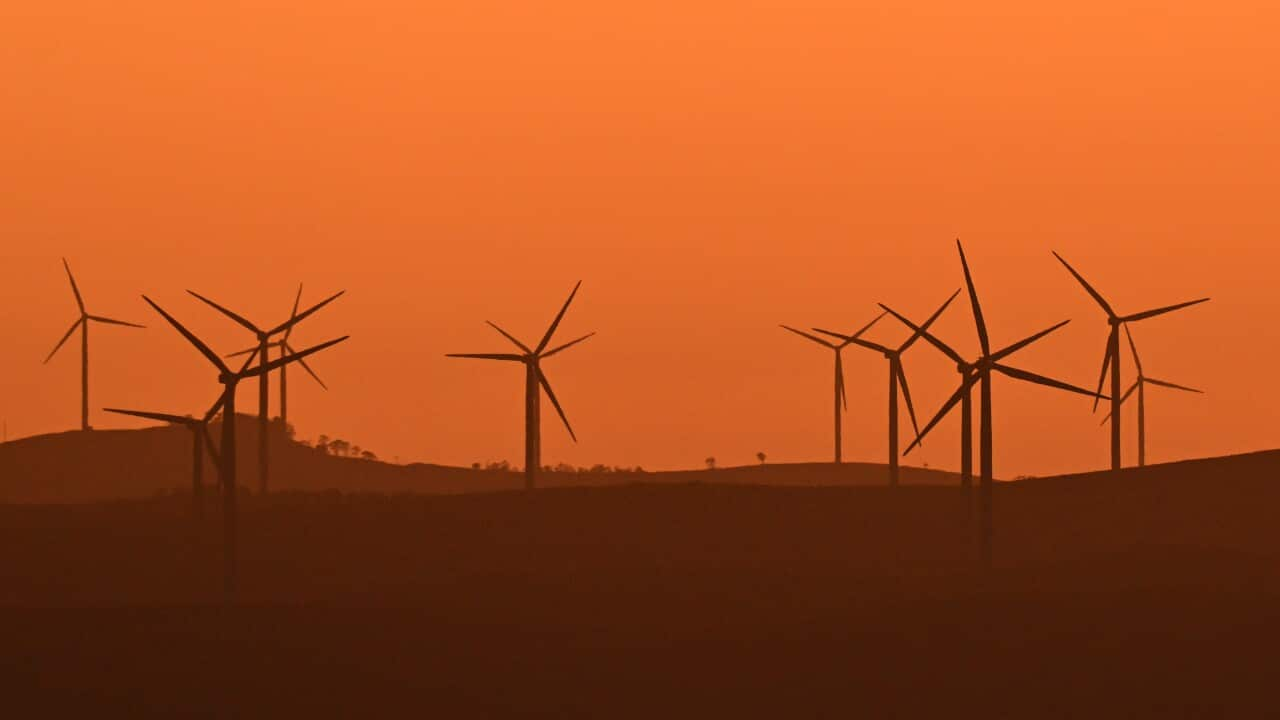The year 2050 is planned to mark a turning point for Australia — when wind farms replace coal mines, and the country entirely erases its carbon footprint.
However, the Nationals on Sunday announced that it will ditch the plan, after reaching a unanimous agreement in the party room meeting.
This means the party will formally abandon its previous commitment to net zero emissions by 2050, a long-standing goal of Australian governments across the political spectrum.
After the meeting, Nationals Leader David Littleproud told the reporters: "When you're only a bit over one per cent of total global emissions, you can hardly mitigate the world's emissions."
The net-zero target has also been a point of debate in the Liberal Party, following their defeat in the May Federal elections.
Opposition energy spokesperson Dan Tehan has stated that the Liberals will likely decide on their position six to nine months after the federal election, between November and January.
Here is what the net zero target exactly means, and why it has been at the centre of Australia's political debates in recent months.
What is net zero?
The term "net zero" is a relatively recent scientific concept that was introduced in various research in the 2000s: humans not adding further greenhouse gases into the atmosphere and slowing down climate change.
Associate professor Ruth Morgan, director of the Centre for Environmental History at the Australian National University, told SBS News: "The idea behind net zero is that ideally countries will be able to work towards ensuring that the amount of greenhouse gases that they emit will be offset or be countered by the amount of greenhouse gases that can be absorbed."
"So that we reach an equilibrium where we are not adding further greenhouse gases into the atmosphere."
The idea soon found its way into politics and climate diplomacy as a solution to global warming, and it was a crucial part of the 2015 Paris Agreement, a legally binding international treaty on climate change.
The agreement's aim was to limit global warming below 2 degrees, and ideally 1.5 degrees by 2050 — a goal that net zero was an important part of.
"The idea was that through cooperation, countries would ensure that they were not going to keep their economies going as business as usual," Morgan said.
"Now, reaching net zero is critical to doing that.
"Every country has nationally determined contributions to the Paris Agreement that they're trying to achieve ... and that's all part of trying to reach net zero, so that we are not adding more and more greenhouse gases."
According to the Climate Action Tracker, an independent scientific project that tracks government climate action, as of October 2025, 145 countries have announced or are considering net zero targets.
What does net zero mean for Australia?
The Australian government has committed to achieving net zero by 2050 and is pursuing an interim target of 62 to 70 per cent emissions cuts by 2035 compared to 2005 levels.
Achieving 82 per cent of electricity from renewables by 2030 is essential for reaching Australia's climate targets.
But reaching these numbers can be challenging.
Fatemeh Salehi, the hub chair for the United Nations academic impact group from Macquarie University, said: "Our economy has been tied to fossil fuels for decades. Coal and gas still make up around 65 per cent of electricity generation."
"The targets are ambitious but achievable, provided policy, infrastructure, and workforce development move in step.
"Meeting these goals requires a holistic approach that combines diverse renewable and low-emission solutions."
Morgan added that the other solution that will help reach the target is "trying to reduce the amount of land clearing".
"That's another way in which we've traditionally added to greenhouse gases. So by trying to curb deforestation and limit the amount of vegetation that's cleared, we can also try to reduce impacts."
Why did the Nationals ditch the plan?
Since the Coalition's historic loss in the federal elections, different factions of the opposition have criticised the net zero plan. But the Nationals' announcement on Sunday was the first official move against the target.
It is expected that the decision will likely anger some moderate Liberals who want to remain committed to achieving net zero by 2050.
Nationals Leader David Littleproud, however, has argued that walking away from net zero doesn't mean they are denying the existence of climate change.
"What we're saying is there's a better, cheaper, fairer way to address it," he said.
The regional party claims that Australia is contributing more than its fair share to reduce carbon pollution, and suggests that emissions targets should be based on the average of comparable OECD countries.
Littleproud has also said the move will be welcomed by all voters because it will lead to lower energy bills.
However, according to Morgan, abandoning the net-zero target will not benefit communities.
"It's really unfortunate because I think the Nationals are supposed to be the party of people that live in regional Australia, and yet we are seeing so often that they are representing the big mining bodies and they are not one and the same thing," she said.
"I don't think it's an either-or situation. We're seeing a lot of opportunities and money going into regional communities that want renewable energy to happen.
"We're seeing stonewalling, which is ultimately going to do their [the Nationals'] constituents a great disservice."
For the latest from SBS News, download our app and subscribe to our newsletter.

